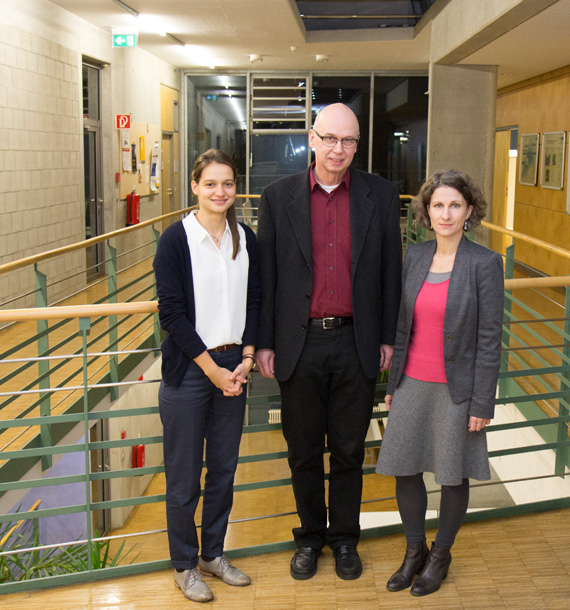Forschungskolloquium
News
Prof. Dr. Thomas Greiner referierte am 07. Dezember zum Thema "Cyber-physische Systeme - Basis für zukunftsträchtige Innovationen"
Cyber-physische Systeme (CPS) stellen das technologische Rückgrat der laufenden branchenübergreifenden hochdynamischen Veränderung der Wirtschaft dar. Für die Produktions- und Automatisierungstechnik wurde hierzu im Rahmen der Hochtechnologiestrategie der Bundesregierung die Initiative „Industrie 4.0“ gestartet. „Industrie 4.0“ steht dabei für die vierte industrielle Revolution, die durch CPS ermöglicht wird. Der Begriff „Industrie 4.0“ hat mittlerweile das gesamte Wirtschaftsleben durchdrungen und ist schon fast Allgemeingut geworden. Die Auswirkungen beschränken sich aber nicht nur auf die Produktion, sondern erfassen auch andere Branchen wie Energie, Medizin, Logistik etc.
Im Vortrag werden an Projektbeispielen unterschiedliche Aspekte vorgestellt und diskutiert.
Prof. Dr. Katharina Kilian-Yasin referierte am 07. Dezember zum Thema "Social Acceptance of alternative mobility systems in Tunis"
The study conducted in the research semester of summer 2016 refers to the traffic situation in the Tunisian capital of Tunis. Tunis faces major traffic challenges. Traffic jams and pollution affect the environment, mobility, life quality and health of its inhabitants negatively. As a developing country, Tunisia is expected to grow economically in the next decades which means that it will be possible for more and more people to buy and drive private cars so that traffic problems and pollution in Tunis may increase. The study conducted by Prof. Dr. Katharina Kilian-Yasin and a German-Tunisian tandem of Master students aimed at suggesting mobility solutions to circumvent the “economic growth/pollution” effect, and to improve people’s mobility. Based on the analysis of traffic infrastructure, traffic flows, mobility routines and the economic situation of mobility users in Tunis, an intersuburban E-minibus system was designed. To evaluate the chances of successful implementation of this option, social acceptance of alternative forms of mobility and the E-Minibus system were analysed.

